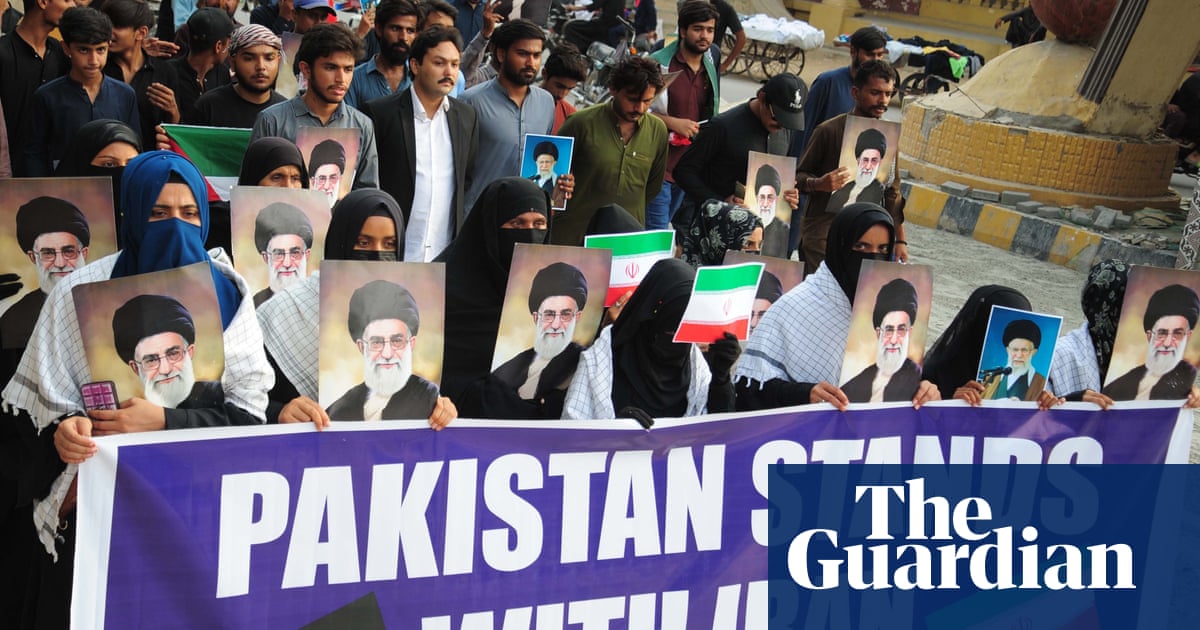Controversy Erupts in Pakistan Over Trump's Nobel Peace Prize Nomination Amidst US-Iran Tensions

In the wake of escalating tensions between the United States and Iran, a heated debate has emerged in Pakistan regarding the nomination of former U.S. President Donald Trump for the Nobel Peace Prize. This discourse has been fueled by recent U.S. military actions in Iran, which have sparked international concern and criticism.
The nomination of Trump, a figure known for his polarizing leadership style, has been met with skepticism and debate in Pakistan, a country that has historically maintained a complex relationship with both the United States and Iran. The timing of the nomination, coinciding with the U.S. strikes on Iranian soil, has only intensified the scrutiny. Critics argue that the nomination undermines the essence of the Nobel Peace Prize, which is intended to honor individuals who have made significant contributions to peace.
Proponents of Trump's nomination point to his administration's role in facilitating peace agreements in the Middle East, such as the Abraham Accords, as evidence of his contributions to global peace efforts. However, detractors in Pakistan highlight the destabilizing effects of his foreign policies, particularly in the context of U.S.-Iran relations, as counterproductive to the ideals of peace and diplomacy.
The implications of this debate extend beyond Pakistan's borders, reflecting broader geopolitical tensions and the challenges of recognizing peace efforts in a world fraught with conflict. The nomination has prompted discussions about the criteria for the Nobel Peace Prize and the complexities of awarding such a prestigious honor amidst ongoing international disputes.
As Pakistan navigates its diplomatic stance between the U.S. and Iran, the debate over Trump's nomination serves as a microcosm of the broader global discourse on peace, power, and the role of international awards in shaping political narratives. The outcome of this debate could influence not only Pakistan's foreign policy but also the international community's perception of the Nobel Peace Prize's relevance in contemporary geopolitics.
🔮 Fortellr Predicts
Confidence: 85%
In the aftermath of the controversy surrounding Pakistan's nomination of Donald Trump for the Nobel Peace Prize, the geopolitical landscape remains tense. Pakistan, attempting to balance its roles in regional diplomacy and international law adherence, finds itself at a crossroads. The nomination, while politically advantageous within certain factions, has sparked significant backlash both domestically and internationally. This situation is expected to intensify discussions within Pakistan’s legislative bodies, as opposition parties leverage the issue for political gain. Internationally, the nomination could sway other countries, causing a ripple effect that might lead to similar contentious nomination decisions or withdrawals, particularly from nations with polarizing leaders involved in ongoing diplomatic interventions.
The Iranian government, meanwhile, is expected to fortify its diplomatic channels, leveraging the condemnation of Trump's military actions as a narrative to garner support from countries critical of US military policies. Concurrently, the United States will likely continue to justify its actions under the guise of strategic defense and counter-terrorism, as Secretary of State and key defense officials engage in a series of meetings with UN allies to mitigate any potential resolutions against the US for breach of international law.
Domestically, within the US, Trump's administration is anticipated to utilize this foreign policy involvement as a testament to his negotiation prowess amidst re-election campaigns, despite significant opposition criticism. This is paralleled by possible shifts in the approval ratings of his administration, hinging on the perceived economic and security implications of the US-Iran tensions.
Economically, the stability in the Middle East will be closely monitored by international markets, with energy traders particularly attuned to oil supply and demand fluctuations which could impact global markets if instability persists or escalates. Multinational corporations may recalibrate their regional strategies to mitigate any adverse effects on supply chains.
Overall, the interplay between diplomatic nominations, military actions, and international perceptions serves as a complex web influencing both national and international policy landscapes, echoing previous historical events where contentious diplomatic efforts crossed paths with military interventions.